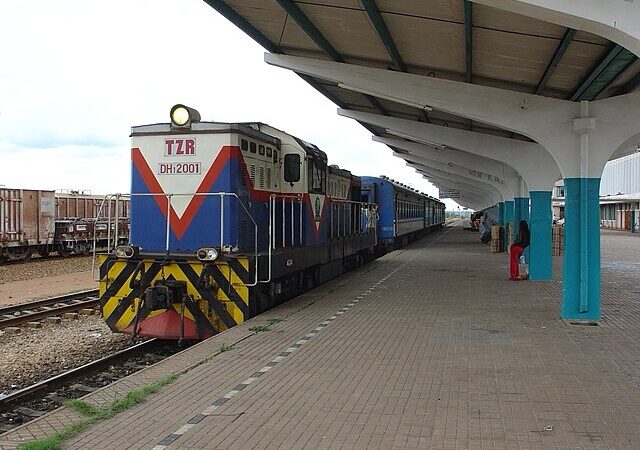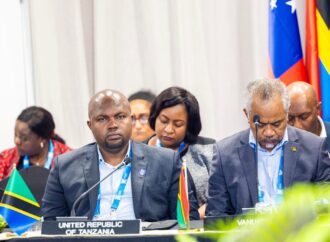The Tazara rail line connecting Zambian copper belt with port of Dar es Salaam will be updated through public-private partnership and compete with US- and EU-backed link between resource-rich areas and Angola’s Atlantic coast.
- The Tazara rail line, first built in the 1970s with Chinese funding, will be updated through public-private partnership
- The project connecting Zambian copper belt with Dar es Salaam will compete with US- and EU-backed link between resource-rich areas and Angola port
As global powers vie for control over critical mineral trade routes, China plans to spend US$1 billion to refurbish a key railway line connecting Zambia’s copper belt region with the Tanzanian port of Dar es Salaam under its Belt and Road Initiative.
On Wednesday, China’s ambassador to Zambia Du Xiaohui handed over a proposal to rehabilitate the Tazara railway to Zambian Transport Minister Frank Tayali, saying the US$1 billion investment would be done through a public-private partnership (PPP) over the coming years.
“Where the hills and streams end and there seems no road beyond, amid shading willows and blooming flowers, another village appears.”
This quote from the great poet Lu You describes a situation in which even though things look bad, events have actually taken a turn for the better.
After years of reading negative news about Confucius Institutes, I feel that it’s quite fitting to apply this line to one of China’s other outreach efforts, Luban workshops.
Confucius Institutes are supposed to “tell China’s story well” by teaching Chinese language and culture as well as providing a space for cultural exchange.
However, they have been subjected to intense criticism in Western countries for allegedly serving as propaganda tools and encroaching on academic freedom.
Fortunately, where Confucius Institutes have failed, Luban workshops have the potential to succeed. Since the first centre was established in 2016, the workshops have become a network of vocational training schools across Africa and Asia, offering courses such as electromechanics, new energy vehicles and “Internet of Things” engineering.
Another advantage of Luban workshops is that they’re geared towards the Global South as opposed to Western countries where China has met strong opposition and where many Confucius Institutes have been shut down.
Luban courses focus on skills that can be easily transferred to the workplace. This is arguably way more practical than courses offered by Confucius Institutes, such as calligraphy, which many would see as a hobby, or Chinese language, which requires years of study for students to only scratch the surface.




